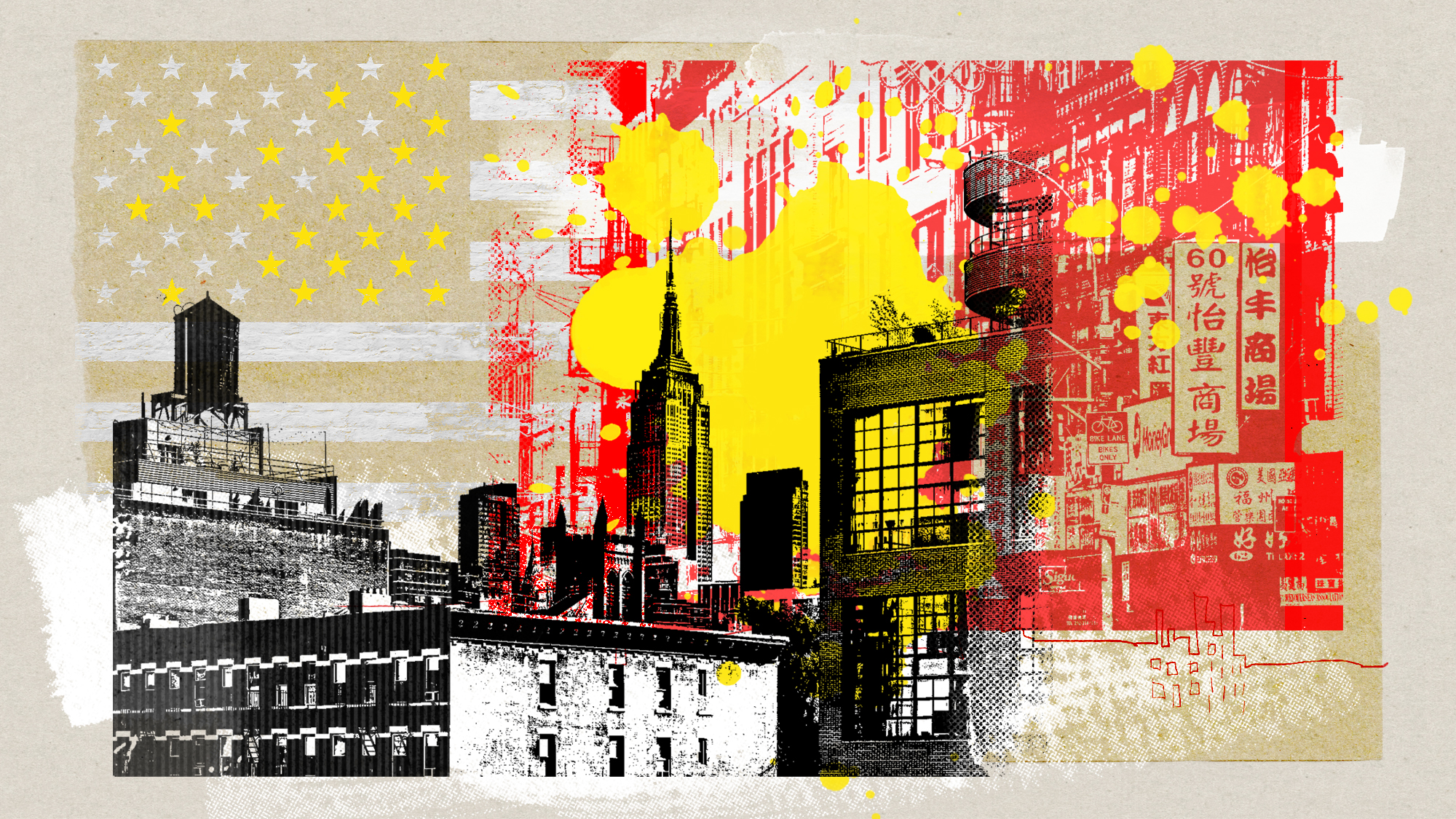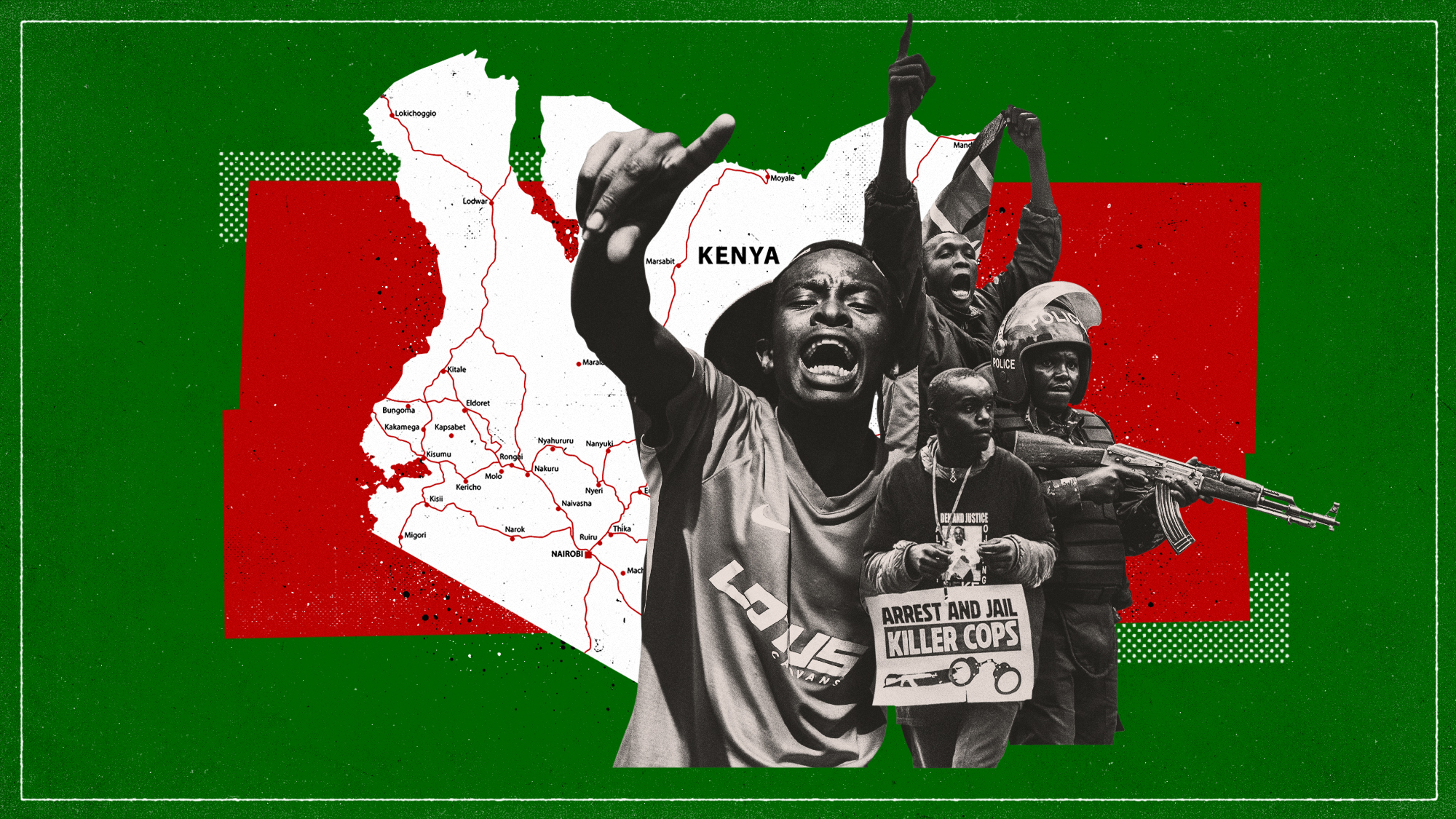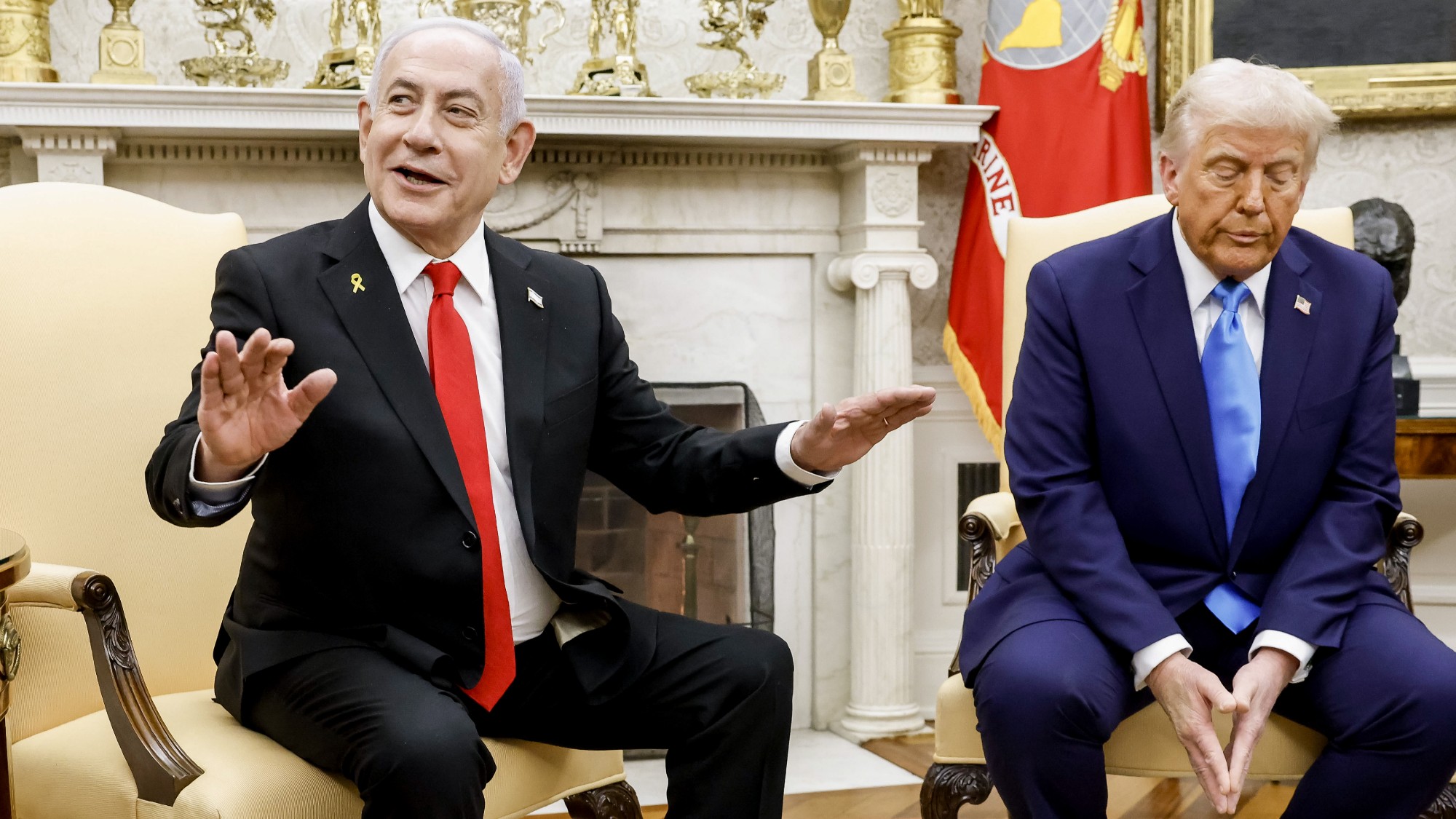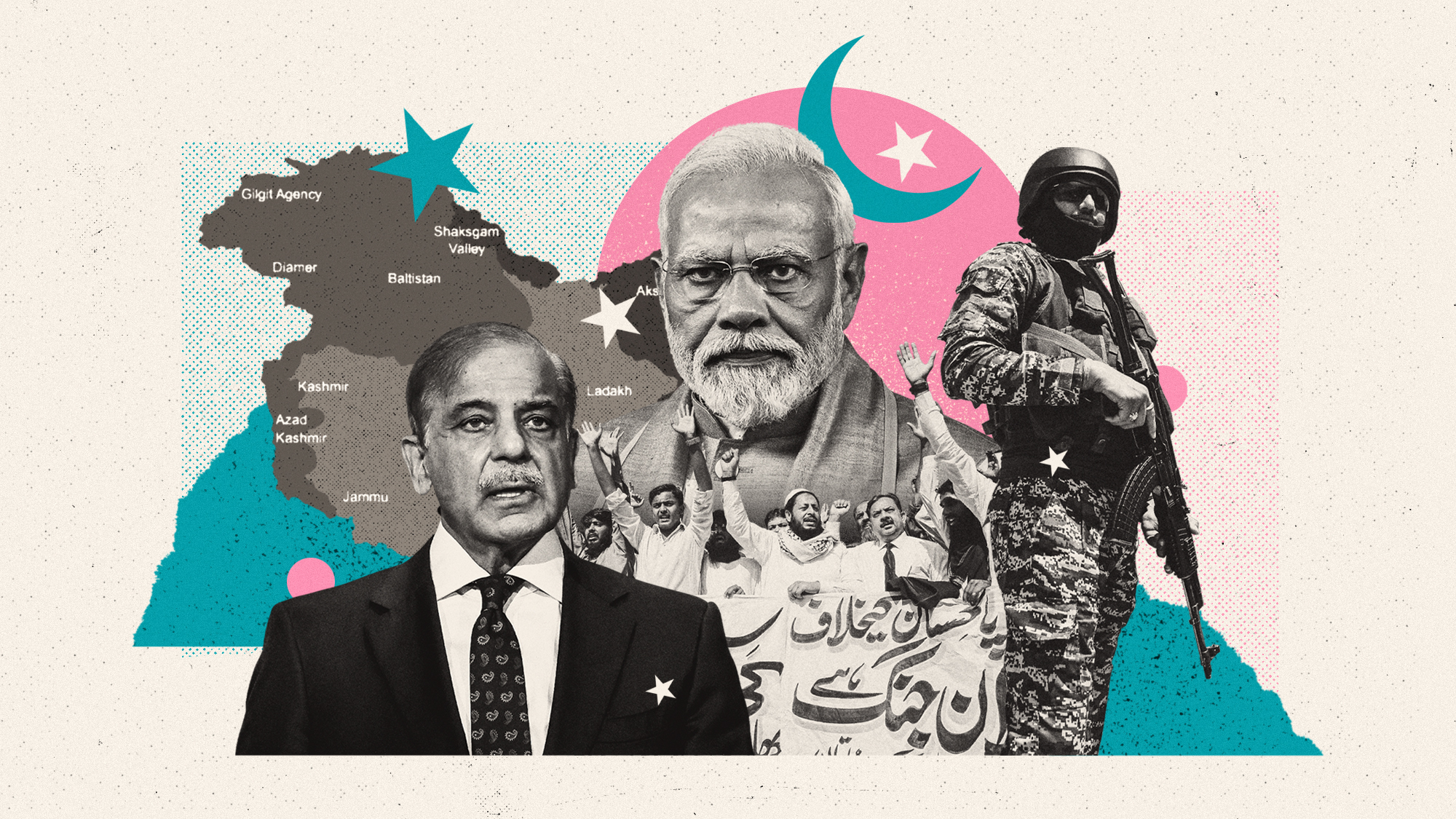What American foreign policy will look like in 2050
Part of our series on America in 2050...

The Obama administration drew criticism in 2011 when one anonymous adviser, in an effort to explain the U.S.'s seemingly subordinate role in the military intervention in Libya, referred to U.S. strategy in the campaign as "leading from behind."
The ill-timed and awkwardly crafted comment was dissected and maligned for months in American media circles, prompting eventual pushback and clarification from the administration.
But that unnamed, and possibly unemployed, adviser might have been on to something. While the United States reigned as the preeminent superpower for much of the 20th Century, the new century holds far more uncertainty.
The Week
Escape your echo chamber. Get the facts behind the news, plus analysis from multiple perspectives.

Sign up for The Week's Free Newsletters
From our morning news briefing to a weekly Good News Newsletter, get the best of The Week delivered directly to your inbox.
From our morning news briefing to a weekly Good News Newsletter, get the best of The Week delivered directly to your inbox.
Once a rallying cry of conspiracy theorists and the black helicopter crowd, the world of 2050 may resemble the new world order long warned of by global government Cassandras. And while the U.S. will remain a dominant figure in this new reality, authority will likely devolve in the decades to come to nations rooted not in the wealthy West, but to emerging nations in what was for years regarded as the global south.
That was the conclusion reached in a 2010 report by Uri Dadush and Bennett Stancil of the Carnegie Endowment for International Peace entitled "The World Order in 2050." Dadush and Stancil outline a scenario in which rising powers will command a larger piece of the economic pie, and with it, greater influence in decision-making bodies like the United Nations and the International Monetary Fund.
Freed from the dictates of outmoded organizations like the G7, power will instead emanate from countries with bigger populations and contradictory worldviews to those in the West.
"In China and India alone, GDP is predicted to increase by nearly $60 trillion, the current size of the world economy," write Dadush and Stancil. This shift toward global parity will force traditional powers in Europe, for instance, to huddle together and rely more heavily on regional alliances and collective foreign policy.
A free daily email with the biggest news stories of the day – and the best features from TheWeek.com
"U.S. technological advantages will likely help the United States maintain its position as a leader of the international community," explain the study's authors, "but China's and India's much lower per capita income, combined with their very large size, may reinforce their authority in many forums as more representative of the vast majority of the world's peoples."
Emerging states still have a tremendous amount of catch-up to play, however, and the challenges they pose to the established international system will come in fits and starts. Present day debates over the size of the U.N. Security Council are just one manifestation of the coming audit of global institutions, as is China's creation of the Asian Infrastructure Investment Bank as an alternative to West-leaning institutions like the World Bank and the Asian Development Bank.
The U.S. will have to pick its battles, both figuratively and literally, using hard and soft power to navigate new alliances and bureaucracies. This more nimble approach to global governance, or what Dadush and Stancil refer to as "flexible geometry," will require a broader, more pluralistic approach to statecraft that may leave some Americans yearning for the halcyon days of "deciders" and "Team America" jokes.
And while international institutions increasingly resemble the people they represent, the U.S. too will begin to look less like its historical brethren in Europe.
U.S. Census Bureau projections show the country becoming a majority-minority nation for the first time in its history by 2044, with nearly one in three Americans expected to be of Latino ethnicity by 2060. This drift toward a more diverse, and decidedly more Americas-centric country could have an effect on the way the U.S. conducts its foreign policy.
A recent survey of Latino Americans conducted by the Chicago Council on Global Affairs found that while Hispanics typically share many of the same national security concerns as other Americans — terrorism, cyber attacks, nuclear proliferation — they did diverge from their non-Latino compatriots on one particularly interesting issue: the United Nations. While the U.N. has consistently polled poorly over the years in the United States, it enjoys a more positive appraisal from Latinos.
It's important, said Allert Brown-Gort, fellow at the University of Notre Dame's Kellogg Institute for International Studies, to look at the countries many Latino Americans originate from — and their size.
"Outside of the large countries like Brazil, Mexico, or Argentina, Latinos are really much more aware of the U.N.," Brown-Gort told The Week, and most "come from relatively small, powerless countries."
The fact that the U.N. is more visible in contemporary Latin American countries — whether it's helping with disaster relief or peacekeeping — adds to its influence with Latino Americans in the U.S. As the United States becomes more diverse in complexion, it may also, consequently, become more pluralistic in its approach to foreign affairs.
But the global move to the middle won't happen over night, and it will undoubtedly be full of uncertainty and confrontation. This remodeled regime will be tested by transnational threats like terrorism and climate change, and both declining and rising powers may look to exploit the nascent system to secure their own power and prestige.
America will remain a military and economic heavyweight in 2050, but midwifing this new global system will also require diplomatic acumen, and talented statesmen and women in both the old and new global governing bodies. It will be a world of hedged bets and mitigated risk; one in which everyone gives a little, and no one gains a lot.
It will be a new world order of sorts, but without the black helicopters.
Kevin B. Sullivan is a freelance editor and writer based in New York. He is the former managing editor of Real Clear World, and his work has appeared in The Huffington Post, Real Clear Politics, and the New York Daily News.
-
 Southern barbecue: This year’s top three
Southern barbecue: This year’s top threeFeature A weekend-only restaurant, a 90-year-old pitmaster, and more
-
 Film reviews: Anemone and The Smashing Machine
Film reviews: Anemone and The Smashing MachineFeature A recluse receives an unwelcome guest and a pioneering UFC fighter battles addiction
-
 Music reviews: Geese, Jeff Tweedy, and Mariah Carey
Music reviews: Geese, Jeff Tweedy, and Mariah CareyFeature “Getting Killed,” “Twilight Override,” and “Here for It All”
-
 Russia is ‘helping China’ prepare for an invasion of Taiwan
Russia is ‘helping China’ prepare for an invasion of TaiwanIn the Spotlight Russia is reportedly allowing China access to military training
-
 Interpol arrests hundreds in Africa-wide sextortion crackdown
Interpol arrests hundreds in Africa-wide sextortion crackdownIN THE SPOTLIGHT A series of stings disrupts major cybercrime operations as law enforcement estimates millions in losses from schemes designed to prey on lonely users
-
 China is silently expanding its influence in American cities
China is silently expanding its influence in American citiesUnder the Radar New York City and San Francisco, among others, have reportedly been targeted
-
 How China uses 'dark fleets' to circumvent trade sanctions
How China uses 'dark fleets' to circumvent trade sanctionsThe Explainer The fleets are used to smuggle goods like oil and fish
-
 One year after mass protests, why are Kenyans taking to the streets again?
One year after mass protests, why are Kenyans taking to the streets again?today's big question More than 60 protesters died during demonstrations in 2024
-
 Israel-US 'rift': is Trump losing patience with Netanyahu?
Israel-US 'rift': is Trump losing patience with Netanyahu?Today's Big Question US president called for an end to Gaza war and negotiated directly with Hamas to return American hostage, amid rumours of strained relations
-
 What happens if tensions between India and Pakistan boil over?
What happens if tensions between India and Pakistan boil over?TODAY'S BIG QUESTION As the two nuclear-armed neighbors rattle their sabers in the wake of a terrorist attack on the contested Kashmir region, experts worry that the worst might be yet to come
-
 Why Russia removed the Taliban's terrorist designation
Why Russia removed the Taliban's terrorist designationThe Explainer Russia had designated the Taliban as a terrorist group over 20 years ago